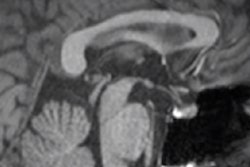Many acute ischemic stroke patients come to the hospital with potentially salvageable brain issue, but some may arrive outside the current time-window guidelines for reperfusion therapy, said senior study author Ona Wu, PhD, of Massachusetts General Hospital in Charlestown, MA.
"By identifying patients with still potentially salvageable tissue, we can potentially enroll these patients in extended late-window treatment studies and thereby improve their chances of having good functional recovery," Wu said.
The use of convolutional neural networks on acute multiparametric MRI exams was highly accurate for predicting which patients would experience lesion growth, Wu said.
"Our findings suggest that deep learning can be used to improve acute ischemic stroke outcomes on an individual patient basis," she told AuntMinnie.com.
How did they do it? You can get all the details at this presentation by first author Stefan Winzeck, who received the RSNA Trainee Research Prize - Resident for the study.



















